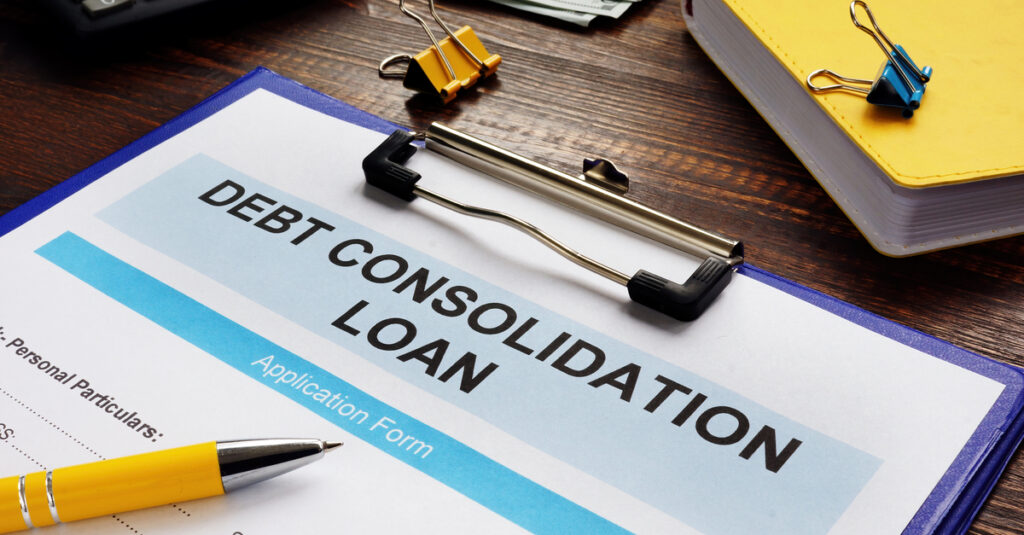Many people with poor or fair credit struggle with unsecured debts like credit cards and short-term loans. Even those with a better credit score often have difficulty keeping up with payments. Fortunately, if you’re looking for debt consolidation for fair credit, there are quite a few reputable online lenders.
Table of Contents
14 Best Debt Consolidation Options
Even if you have fair credit (a FICO score between 580 to 669) you can still qualify for certain unsecured personal loans to consolidate your debts. Some online lenders even cater to borrowers with fair or poor credit.
Before going this route, make sure you fully understand the terms, rates, and other conditions of the loan. Otherwise, you could be looking at spending more money or falling further into debt.
Disclaimer: Some or all of the products featured in this article are from our partners who compensate us. This may influence which products we write about and where and how the product appears on a page. However, this does not influence our evaluations. All opinions are our own.
9 Best Personal Loans for Fair Credit
Looking for a way to manage multiple unsecured debts and lower your monthly payments or overall interest rate? Here are the best debt consolidation loans for fair credit:

Avant
- Minimum credit score: 580
- Loan amount: $2,000 to $35,000
- Loan term: 24 to 60 months with fixed payments
- Fixed APR: 9.95% to 34.74%
- Variable APR: None
- Time until loan funds: Within 1 to 3 business days upon approval
- Application fee: 4.75% application fee
- Origination fee: No fee
- Prepayment penalty: None, but there is a $25 late fee and a $15 fee for returned payments.
- Discounts: 0.50% discount on APR with autopay
- Eligibility: 18+ years old, U.S. citizen or permanent resident, SSN, proof of income
- Soft credit inquiry: Yes, with prequalification, but it doesn’t impact your credit score.
- Minimum income: Undisclosed
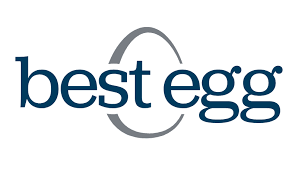
Best Egg
- Minimum credit score: 640 is recommended, but you need 700+ for the best rates and higher loan amounts
- Loan amount: $2,000 to $50,000 (minimum amounts vary by state – ex. Georgia’s minimum is $3,000)
- Loan term: 36 to 60 months
- Fixed APR: 8.99% to 35.99%
- Variable APR: None
- Time until loan funds: 1 to 3 business days after application approval
- Application fee: None
- Origination fee: 0.99% to 5.99% (or 4.99%+ on loans with 4-year terms)
- Prepayment penalty: None
- Discounts: No autopay discount
- Eligibility: Fair or good credit, verifiable income, and proof of identity
- Soft credit inquiry: Yes
- Minimum income: $100,000 and 700+ credit score for the best rates and highest amounts
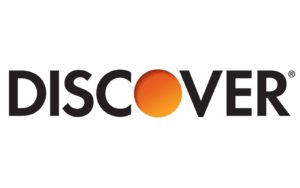
Discover
- Minimum credit score: 580
- Loan amount: $35,000 to $300,000
- Loan term: 36 to 84 months
- Fixed APR: 6.99% to 24.99%
- Variable APR: None
- Time until loan funds: 1 to 7 days after approval
- Application fee: No application, appraisal, or closing fees
- Origination fee: No fee
- Prepayment penalty: None
- Discounts: No autopay or other rate discounts
- Eligibility: $25,000+ annual income, fair credit, and low debt-to-income ratio
- Soft credit inquiry: Yes, for prequalification
- Minimum income: $25,000 for any personal loans

LightStream
- Minimum credit score: 660+ recommended
- Loan amount: $5,000 to $100,000
- Loan term: 24 to 84 months
- Fixed APR: 7.49% to 24.49% with autopay
- Variable APR: None
- Time until loan funds: Same-day funding possible
- Application fee: None
- Origination fee: No fee
- Prepayment penalty: None
- Discounts: 0.50% autopay discount
- Eligibility: Good credit, few to no delinquencies, stable income (unspecified amount), and low debt-to-income ratio
- Soft credit inquiry: No pre-approvals, so there will be a hard inquiry
- Minimum income: Unspecified

PenFed Credit Union
- Minimum credit score: 650
- Loan amount: $600 to $50,000
- Loan term: Up to 60 months
- Fixed APR: 7.74% to 17.99%
- Variable APR: None
- Time until loan funds: 1 to 2 business days, on average
- Application fee: None
- Origination fee: No fee
- Prepayment penalty: None
- Discounts: No autopay discount
- Eligibility: Fair to good credit, verifiable income
- Soft credit inquiry: Yes, with the initial inquiry
- Minimum income: Unspecified

LendingPoint
- Minimum credit score: 580
- Loan amount: $2,000 to $36,500
- Loan term: 24 to 60 months
- Fixed APR: 7.99% to 35.99%
- Variable APR: None
- Time until loan funds: Within one business day after approval
- Application fee: None
- Origination fee: No fee to 6%, depending on your state
- Prepayment penalty: None
- Discounts: There is autopay, but no discount
- Eligibility: Bad credit, verifiable income, and a maximum of 50% debt-to-income (DTI) ratio
- Soft credit inquiry: Yes, to check eligibility
- Minimum income: $20,000 annually
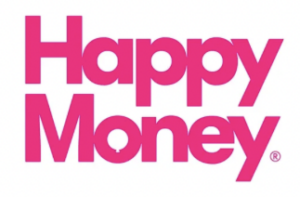
Happy Money (Formerly Payoff)
- Minimum credit score: 550
- Loan amount: $5,000 to $40,000
- Loan term: 24 to 60 months
- Fixed APR: 10.50% to 29.99%
- Variable APR: None
- Time until loan funds: 3 to 7 business days after approval
- Application fee: None
- Origination fee: Yes, but unspecified
- Prepayment penalty: None
- Discounts: No autopay discount
- Eligibility: 3+ years’ credit history with at least two open accounts in good standing
- Soft credit inquiry: Yes, to prequalify applicants
- Minimum income: Unspecified

Universal Credit
- Minimum credit score: None, but 560 or above is recommended
- Loan amount: $1,000 to $50,000
- Loan term: 36 to 60 months
- Fixed APR: 11.69% to 35.99%
- Variable APR: None
- Time until loan funds: Within one business day
- Application fee: None
- Origination fee: 5.25% to 8.00%
- Prepayment penalty: None, but there are late fees
- Discounts: 0.50% discount with autopay
- Eligibility: Unspecified, but no joint or co-signed loans are available
- Soft credit inquiry: Pre-approval available
- Minimum income: Unspecified
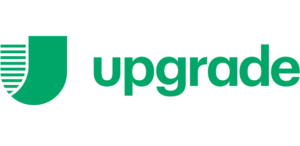
Upgrade
- Minimum credit score: 560+ recommended
- Loan amount: $1,000 to $50,000
- Loan term: 24 to 84 months
- Fixed APR: 8.49% to 35.99%
- Variable APR: None
- Time until loan funds: Same-day funding available
- Application fee: None
- Origination fee: 2.90% to 8.00%
- Prepayment penalty: None
- Discounts: 0.50% discount with autopay
- Eligibility: Maximum 75% DTI ratio (including mortgage), 2+ active accounts, and 560+ credit score
- Soft credit inquiry: Yes, for pre-qualification
- Minimum income: None, but the average annual income is $78,000
Peer-to-Peer Loans for Fair Credit
Another debt consolidation option for those with fair credit is peer-to-peer (P2P) lending. This type of online lending lets individuals or businesses borrow directly from individual investors without needing a financial institution.
5 Best Peer-to-Peer Loans for Fair Credit
Here are the best peer-to-peer loan platforms for fair credit:

PersonalLoans
- Minimum credit score: 600 recommended
- Loan amount: $250 to $35,000
- Loan term: 61 days to 96 months
- Fixed APR: 5.99% to 35.89%
- Variable APR: None
- Time until loan funds: Same-day funding is available, but it could take up to 2 weeks
- Application fee: None
- Origination fee: 1% to 5%
- Prepayment penalty: None, but there’s a late payment fee of up to 5% of the unpaid amount. There’s also a $15 fee for payments by personal check.
- Discounts: No autopay discount, but borrowers may receive a $25 Visa eGift card upon loan approval
- Eligibility: Verifiable income, minimum credit score, and proof of identity required. Other requirements vary based on the investor
- Soft credit inquiry: Yes
- Minimum income: Varies

Peerform
- Minimum credit score: 600 recommended
- Loan amount: $10,000 to $35,000
- Loan term: 36 to 50 months
- Fixed APR: 5.99% to 29.99%
- Variable APR: None
- Time until loan funds: Same-day funding is available, but it could take up to 2 weeks
- Application fee: None
- Origination fee: 1% to 5%
- Prepayment penalty: None, but there’s a late payment fee of up to 5% of the unpaid amount. There’s also a $15 fee for payments by personal check.
- Discounts: No autopay discount, but borrowers may receive a $25 Visa eGift card upon loan approval
- Eligibility: Verifiable income, minimum credit score, and proof of identity required. Other requirements vary based on the investor.
- Soft credit inquiry: Yes
- Minimum income: Varies

LendingClub
- Minimum credit score: 600
- Loan amount: $1,000 to $40,000
- Loan term: 36 to 60 months
- Fixed APR: 9.57% to 36.00%
- Variable APR: None
- Time until loan funds: Within two business days after approval
- Application fee: None
- Origination fee: 3% to 6% (5% is the average)
- Prepayment penalty: None
- Discounts: None
- Eligibility: 40% maximum DTI ratio, verifiable income, fair credit or above, 18 years or older
- Soft credit inquiry: Yes, to check eligibility
- Minimum income: Unspecified

Upstart
- Minimum credit score: 580
- Loan amount: $1,000 to $50,000 (higher minimums in certain states)
- Loan term: 3 and 5-year terms
- Fixed APR: 6.7% to 35.99%
- Variable APR: None
- Time until loan funds: 1 to 14 business days from application
- Application fee: Free
- Origination fee: No fee to 8%
- Prepayment penalty: None, but there’s a $15 or 5% late payment fee
- Discounts: None
- Eligibility: Varies, but borrowers need verifiable income and no credit delinquencies
- Soft credit inquiry: Yes
- Minimum income: $12,000 annually
Prosper
- Minimum credit score: 640
- Loan amount: $2,000 to $40,000
- Loan term: 3 and 5-year terms
- Fixed APR: 6.99% to 35.99%
- Variable APR: None
- Time until loan funds: Next-day funding is available
- Application fee: None
- Origination fee: 2.41% to 5.00%
- Prepayment penalty: None
- Discounts: No autopay discount
- Eligibility: Proof of income (ex. pay stubs or tax returns), proof of identity, and basic contact details
- Soft credit inquiry: Yes
- Minimum income: Varies, but $30,000 a year is recommended
What Does It Mean to Have a Fair Credit Score?
When you apply for a loan or credit card, the lender or card issuer will run a credit check to determine your creditworthiness. Borrowers with good credit or better have the best chance to qualify at the lowest rates.
There are two main scoring models used today: FICO Score and VantageScore. FICO defines “fair” credit as any score between 580 and 669. VantageScore defines it as any score between 601 to 660.
Although these systems operate similarly, they have a few distinctions. Here are the ranges for FICO’s scoring model:
- Excellent credit score: 800 and above
- Very good credit score: 740 to 799
- Good credit score: 670 to 739
- Fair credit score: 580 to 669
- Bad credit score: 300 to 579
Here are VantageScore’s ranges:
- Excellent credit score: 781 to 850
- Good credit score: 661 to 780
- Fair credit score: 601 to 660
- Poor credit score: 500 to 600
- Very poor credit score: 300 to 499
Both FICO and VantageScore base an individual’s credit score on the following factors:
- Types of active accounts / Mix of credit
- Credit utilization
- Debt-to-income ratio
- Length of credit history
- Payment history
- Recent activity (ex. hard inquiries)
To get a VantageScore, you must have at least one open account with no minimum age requirement. FICO also requires you to have an active account at least six months old.
READ MORE: How to use subscriptions like Netflix and Hulu to build credit
How Debt Consolidation Works
Debt consolidation is getting one larger loan to combine and pay off several smaller debts. This new loan should be big enough to cover all the current balances. It should also come with a lower interest rate and smaller monthly payment than what you were paying before. You then use the loan proceeds from the lower-interest-rate loan to pay off your other debts.
Pro tip: You have some control over the loan payment you must make each month. For example, a loan term of two years will mean a considerably higher payment each month than a five-year term, but you’ll pay more in interest over the life of the loan.
You can consolidate most unsecured debts, including payday loans, home improvement loans, credit card balances, and title loans.
How to Get a Debt Consolidation Loan If You Have Fair Credit
Luckily, getting a debt consolidation loan is a straightforward process. Here are the nine steps you’ll need to take.
Check Your Credit and Fix Any Errors
First, request a free credit report from all three major credit bureaus (Equifax, Experian, and TransUnion) from annualcreditreport.com. Once you have it, carefully review the report for any errors that could influence your score.
If you find an error, you can file a dispute with the associated credit bureau to have it removed. To do this, use the bureaus’ online portal or send them a letter in the mail. Include your contact information, a clear description of the error, why you are disputing it, and a copy of the report that lists it. Also, specify that you want the error removed or fixed.
Remember, errors on a credit report can be costly. After all, they can keep you from qualifying for the best terms or rates. They can also make it harder to pay off existing debts.
Add Up Your Debts to Determine How Much You Need to Borrow
Even if you qualify for a high amount, that doesn’t mean you should borrow it. Before taking out a debt consolidation loan, add up all of your unsecured debts. That way, you’ll know exactly how much you need to borrow without going further into debt.
Debts to consider include:
- Any remaining balances on high-interest credit cards
- Unsecured loans (ex. personal loans)
- Unpaid utility bills
- Medical bills
Compare Lenders Based on Your Needs
Never choose the first lender willing to work with you. Instead, shop around and compare other loan offers first to make sure you’re getting the best one for your circumstances.
When looking for a lender or potential loan, consider the following factors:
- Annual Percentage Rate or interest rates: These should be lower than what you’re currently paying.
- Minimum monthly payment: Make sure it’s affordable.
- Fees: This includes origination, administration, application, late fees, and prepayment penalties.
- Autopay discounts: Some lenders have an APR discount with autopay.
- Eligibility requirements: Confirm the income, credit score, and other requirements, as well as whether cosigners or joint loans are allowed.
- Application process: Is it simple? How long does it take?
- Time to funding: Online lenders often offer same-day or next-day funding.
- Minimum and maximum loan amounts: Only take out what you need.
Use a Debt Consolidation Calculator
A good debt consolidation calculator will give you a good idea of how much you need to borrow. Use one online to determine your estimated monthly payment based on different loan terms, origination fees, and interest rates.
Make sure the monthly loan payment is manageable.
If the monthly payment is too high, either because of the interest rate or loan term, taking out a new loan won’t help you get out of debt. You can find a good online debt consolidation calculator at sites like Bankrate or Wells Fargo.
Assess Your Loan Purpose
Think about what you’re trying to achieve with a debt consolidation loan. Do you want to pay off multiple unsecured debts faster? Are you looking to simplify your debts or lower your monthly payments?
Whatever the case, make sure you know exactly what the loan is for and why it’s necessary. That way, you won’t end up with another loan that’s difficult to repay.
Select a Lender
Carefully review the list of potential debt consolidation lenders and weed out those that don’t match your need. For example, remove the lender from the list if the monthly payments or loan fees are too high. If the maximum borrowing amount is too low, get rid of it.
Continue narrowing down the list until you have one remaining.
Complete the Application Process
Most online loan applications take between 10 to 30 minutes to complete. Before submitting one, read the fine print. That way, you’ll be aware of any upfront or hidden fees.
Make sure you also have the required documentation so the application goes as smoothly as possible. This includes things like your social security number, ID card, proof of income, bank statements, and your address. If you’re applying with a cosigner, they should also have their information and documents ready.
Wait to See If Your Loan Application is Approved
The approval time varies from lender to lender. Some online lenders will approve you the next business day. Others take one or two weeks.
In some cases, the final loan offer will be different from what you were initially expecting. Upon approval, verify the terms and conditions to make sure it still suits your needs.
Get Your Funds
Most lenders will deposit the loan proceeds directly into your bank account. This can take anywhere from one business day after approval to up to a week.
Once you have the money, it’s a good idea to pay off your existing debts quickly to avoid accruing more interest. Some lenders will instead send the funds directly to your creditors to pay off the debts. If you go with this option, reach out to each creditor to verify that they’ve received the money and the balance is paid in full.
Do Debt Consolidation Loans Hurt Your Credit Score?
Applying for a debt consolidation loan means a hard inquiry, which will cause a temporary drop in your credit score. As long as you make on-time payments by the due date and manage the loan well, your credit score will bounce back within a few months or so. Over time, you could even see a score increase.
If you use the new loan to consolidate credit card debt, avoid the temptation of using the newly available credit from those cards, though. Otherwise, you could end up increasing your overall debt or fall behind on payments, which could cause long-term damage to your credit score.
Other Options for Debt Consolidation
Here are some other options you can try to consolidate or manage your debts better.
Secured Loan
A secured loan is a loan backed by collateral. Mortgage loans, auto loans, and secured credit cards are all secured loans. There are also secured debt consolidation loans, which you can get by putting up a paid-off vehicle or your home.
If you fail to repay the loan on time, the lender can take the collateral instead. In some cases, the lender will place a lien on your asset until the loan is fully repaid.
Because the risk falls entirely on the borrower, lenders are more willing to work with those with poor or fair credit.
Apply for a Loan With a Co-Signer
If your credit score is keeping you from getting approved for a debt consolidation loan, apply with a co-signer. Your cosigner should have excellent credit and a steady income as this will give you higher approval odds and the lowest interest rates.
When someone agrees to cosign a loan with you, they essentially agree to take responsibility with you to pay it back. That means, if you’re unable to make payments, they will have to do it instead.
Installment Loan From a Traditional Bank or Credit Union
An installment loan can refer to either a personal or commercial loan. They’re called installment loans because the borrower must make regular monthly payments over a specific period. These payments will include the principal balance and any interest on the loan.
Most installment loans have fixed payments and fixed interest rates. Some, like mortgage loans, can be variable, though. There are also secured and unsecured installment loans.
When applying for an installment loan, make sure you know exactly how much money you need and why. As with any loan, shop around for the best option and read through the terms before signing up for anything. Generally, your bank or credit union is a good place to start since you already have an established relationship with them.
Home Equity Loan or Line of Credit
Home Equity Lines of Credit (HELOCs) and home equity loans are secured by your home. This means that the amount you can borrow is based on the current equity in your home. The equity is the difference between the amount you still owe on your mortgage and the property’s market value. The borrowing limit typically caps out at 85% of the home equity.
Although they’re similar, these two types of loans function a little differently.
A HELOC is a revolving line of credit you can borrow from as needed. HELOCs have variable interest rates, though, so you could be paying more on certain months than on others.
Home equity loans function more like other loans as the borrower gets a lump sum of money upfront. These loans have fixed interest rates.
Both the HELOC and home equity loans usually come with lower interest rates than other loans or credit cards. You can also use the money for nearly any reason, including debt consolidation or home renovations.
If you have a lot of available equity in your home and can manage payments well, these can both be good options. However, failing to repay either one could mean losing your home.
READ MORE: How does a second mortgage work?
Refinance Your Mortgage
If you’re looking to refinance your mortgage for a lower rate, this is a good time to do it. Currently, the average interest rate is around 4.08% on a 30-year fixed loan. This is lower than most other loans, making it a good way to consolidate any unsecured, high-interest debts.
Keep in mind that refinancing your mortgage does mean undoing any years you’ve already spent paying back your original loan. However, it also means a lower, potentially more affordable monthly payment.
Another option is a cash-out refinance, or debt consolidation refinance. With this option, you get a new mortgage that’s worth more than what you previously owed. You receive the difference in cash, which you can then use to pay off other debts.
READ MORE: How to refinance a paid-off home
Balance Transfer Credit Card
A balance transfer credit card is a type of credit card that lets you transfer another card’s balance to it. These cards usually come with a low interest rate, making them ideal for getting rid of high-interest credit cards.
Some balance transfer credit cards have a 0% introductory APR period that lasts anywhere from 12 to 21 months. Consider applying for one if you can pay off the balance in full before this introductory period ends.
Keep an eye out for other fees like a balance transfer or annual fee. Additionally, you might need to have good credit to qualify for one of these cards.
READ MORE: Best balance transfer credit cards
Debt Management Plan
Nonprofit credit counseling agencies often offer debt management plans (DMPs). These plans take your unsecured debts and roll them into a single payment plan with a 3- to 5-year term. Every month, you will make a fixed payment to the agency, which they’ll use to pay your creditors.
The advantage of a DMP is that it can result in lower interest rates and make your monthly payments more manageable. It can also stop calls from debt collectors. With good financial habits, you can also drastically reduce your total debt by the end as well.
However, there are a few things to consider.
For one thing, a DMP does not include secured debts or certain unsecured debts, such as student loans. For another, any credit card accounts you enroll in the DMP will most likely have to be closed.
This means you will no longer have access to them. If the accounts were older ones, closing them could also impact your average age of credit. It might also mean a higher credit utilization ratio, depending on which accounts remain.
Credit counseling agencies usually charge an initial enrollment or setup fee, as well as a monthly fee. However, if the alternative is hefty late fees from creditors, it could be worth it.
READ MORE: Guide to credit counseling
Debt Settlement
Debt settlement is another way to reduce the total amount you owe.
While you can try to settle your debts yourself, most people go through a debt settlement company. These companies will contact your lenders and creditors on your behalf and attempt to negotiate a plan to settle or reduce your debt.
During this time, you’ll need to start making deposits into a secure account that’s connected to the debt settlement company. If the company successfully negotiates a debt, the money in this account will go towards paying off the remainder.
There are a few risks to debt settlement.
For one thing, any successfully settled debt could be considered as taxable income by the IRS. For another, companies typically charge 15% to 25% of the total debt settled. However, the average person saves about 30% of their original debts after all program fees.
During negotiations, the debt settlement company might request that you stop making payments to your creditors. If the negotiation fails, you will be held accountable for any late fees. The accounts could also end up in collections. However, if it’s successful, it could keep you from filing for bankruptcy.
READ MORE: How debt settlement works
Borrow From Friends and Family
Depending on how much you owe, you might be able to borrow from friends or family members. Make sure everyone involved understands the parameters, though. This means repayment terms, interest (if any), and so on. Never borrow more money than you can repay as it could hurt your relationship.
The Bottom Line
Even if you have fair credit, you can still get a debt consolidation loan or find another way to repay high-interest debts. Make sure you carefully vet any prospective lenders before agreeing to any loan product, though.
Additionally, if you can afford to wait until you build up your credit, do that first. That way, you’ll get better interest rates and terms the next time you apply for a loan or credit card.
FAQs
There are various loans you can get with a 600 credit score, including certain personal loans, auto loans, debt consolidation loans, and credit-builder loans. Credit-builder loans in particular are made for people who have poor credit and want to build it up. For any other type of loan, a 600 credit score may result in higher APRs and less favorable terms.
Yes, but there’s a good chance you’ll face high interest rates and additional fees if you don’t have any banking history. Many people who are unbanked or underbanked end up having to turn to high-interest loans like payday loans or other short-term installment loans. This could lead to a vicious cycle of debt that’s difficult to escape.
A credit-builder loan is a better option if you’re trying to establish credit but don’t need money. These reverse loans do require you to set up a savings account or certificate of deposit, though.
SoFi lends to people based on several factors, including credit score and income. The site does not list the minimum credit score, but the average borrower has a 680 credit score.

